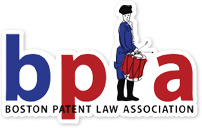
Patent Agent Privilege in the United States and Canada


1. The Law
On March 7, 2016, the U.S. Court of Appeals for the Federal Circuit decided in
In re Queen’s University at Kingston
that “patent agent privilege”—equivalent to the attorney-client privilege—protects communications between inventors and non-attorney patent agents. As a result, it was determined that the patent owner does not need to disclose communications between inventors and non-attorney patent agents in the discovery phase of a federal patent infringement lawsuit.
The privilege exists only in federal courts that are asked to resolve questions of federal law. However, the Federal Circuit’s decision is not binding on state courts or federal courts in diversity cases because the privilege does not exist under the law of any U.S. state.
Meanwhile, an amendment to the Canadian Patent Act
1 created a statutory privilege between Canadian patent and trademark agents and their clients, effective as of June 24, 2016. The Canadian privilege extends to patent and trademark agents working in other countries that provide privilege.
The Canadian statute protects a confidential communication between a client and a patent agent only if the communication “is made for the purpose of seeking or giving advice with respect to any matter relating to the protection of an invention.” Similarly, according to the Federal Circuit majority, “[c]ommunications that are not reasonably necessary and incident to the prosecution of patents before the USPTO fall outside the scope of the patent-agent privilege.”
Together, the Federal Circuit decision and the Canadian statute begin to harmonize the law of patent agent privilege in the United States and Canada. As a first step, each country now provides a limited privilege to non-attorney patent agents within its borders. Furthermore, many professionals will benefit from the recognition of privilege across the border.
- Canadian patent agents in American federal courts2: The Federal Circuit decision inIn re Queen’s University at Kingstonrecognizes privilege for more than seven hundred Canadians who are registered patent agents before the USPTO even though these professionals are not U.S.-licensed attorneys. However, Canadian patent agents who are licensed before the Canadian Intellectual Property Office but not the USPTO are not protected in American federal courts.
- American patent agents in Canadian courts: The Canadian statute provides privilege to all American patent agents and attorneys who are licensed before the USPTO if their patents become subject to litigation in Canadian courts.
2. Commentary
The facts underlying the in
In re Queen’s University at Kingston
decision illustrate the importance of cross-border recognition of patent agent privilege.
Queen’s University
is located in Kingston, Ontario, on the northern bank of the St. Lawrence River about halfway between Toronto and Montreal. The university hired two local Canadians who were registered patent agents before the USPTO to procure U.S. patents for technology involving “attentive user interfaces” that allow devices to change their behavior based on the attentiveness of the user.
The university and its licensee sued Samsung
for alleged patent infringement. Samsung demanded the disclosure of communications between Queen’s University and its patent agents, but Queen’s University refused, citing patent agent privilege.
U.S. District Courts had split on whether a patent agent privilege existed3 . The question was an issue of first impression before the Federal Circuit. Judges O’Malley and Lourie filed the majority opinion, holding that a patent agent privilege existed. Judge Reyna dissented.
The dissent argues, inter alia
, that “no pressing need for an agent-client privilege exists.” Even without a special privilege, agent-client communications are usually privileged if the agent works under attorney supervision. While some patent agents work as sole practitioners, most agents work in law firms or as part of an in-house patent team for a large company.
The foregoing statements accurately describe the role of patent agents within the United States. However, in Canada and other countries, most patent practitioners who are licensed before the USPTO are agents, not attorneys, and do not work under the supervision of U.S.-licensed attorneys. Of the 770 USPTO-registered patent practitioners with a Canadian address of record, about 95 percent are agents, and only about 5 percent are U.S.-licensed attorneys.4 Many Canadian IP firms employ patent agents who are dual-licensed before the Canadian Intellectual Property Office and the USPTO. Although some of these professionals are Canadian solicitors (i.e
., attorneys), few are U.S.-licensed attorneys.
The Federal Circuit’s decision appropriately avoids a geographic bias against Canadian patent owners such as Queen’s University. It would seem inequitable to deny privilege to USPTO-registered patent agents who work in Canada for Canadian clients while allowing privilege for patent attorneys and agents who work in the U.S. for mostly American clients. Such inequity could have induced some Canadian inventors to hire American patent attorneys to preserve privilege. Therefore, the cross-border recognition of patent agent privilege may enable U.S. and Canadian IP firms to compete more evenly for business.- See Paragraph 54, amending section 16.1.
- The privilege does not apply in (1) state courts, or (2) federal courts in diversity jurisdiction.
- Compare Buyer’s Direct Inc. v. Belk, Inc. (Central District of California recognizing patent agent privilege in view )with Agfa Corp. v. Creo Products, No. Civ. A. 00-10836-GAO, 2002 WL 1787534, at *3 (D. Mass. Aug. 1, 2002) (District of Massachusetts holding communications with patent agents is not privileged).
- Data generated on July 5, 2016, by search of USPTO Patent Practitioner Search websiteselecting “Canada” as the country to search, finding 770 U.S.-licensed patent practitioners in Canada, with 31 (4%) being listed as attorneys; the remaining 739 practitioners (96%) are listed as agents. It is probable that at least a few “agents” are actually U.S.-licensed attorneys who did not notify the USPTO that they became attorneys after they already registered as agents.
Summer 2016 -
By
, Yale Yechiel N. Robinson
M. Robinson & Company


Index
Table of Contents
President's Message by Erik Belt
Read more >
Check Yo’self Before You Wreck Yo’self (or Your Sequence Listing)
Read more >
< Back
Message from the Editor-in-Chief
Read more >
Cuozzo
: The Case that Wasn’tRead more >
Annual Dinner to Honor the Federal Judiciary an Evening Enjoyed by the Bench, Bar, and Guests
Read more >
Patent Agent Privilege in the United States and Canada
Read more >
Enfish and TLI:
A Study of the Federal Circuit’s Recent Section 101 OpinionsRead more >
USPTO Launches Pilot Program for Early Review of Cancer Immunotherapy Patent Applications
Read more >
Federal Circuit Finds
BASCOM
Internet Content Filtering Claims Patent Eligible
Read more >
Invented Here!
- 2016 - Highlighting New England’s InnovatorsRead more >
BPLA Files Amicus Brief in Support of Sequenom’s Petition for a Writ of Certiorari
Read more >
Writing Competition
Read more >
Halo
Decision Regarding the Standard for WillfulnessRead more >
Members on the Move
Read more >
Reasonable Royalties and the Federal Circuit in 2015: Evolution of the Revolution
Read more >
Community Calendar
Read more >





